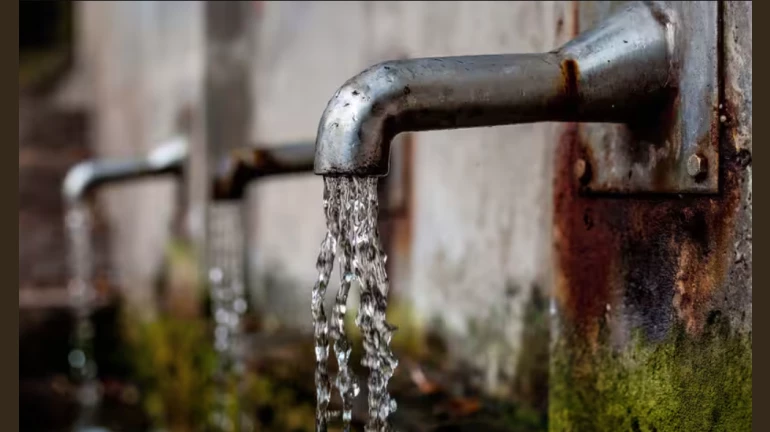
Mumbai is dealing with a chronic water crisis marked by unequal access, infrastructure failures, and public health risks, as per a report by Praja Foundation. The report called ‘The Status of Civic Issues in Mumbai’ was published on Tuesday, May 20.
Unequal Access to Water
As per the report, Mumbai receives 4,370 million litres per day (MLD) of water from seven reservoirs. Yet, only 3,975 MLD actually reaches households due to pipeline losses. This results in a 15% supply gap. This is a shortfall of 689 MLD, which can serve nearly 30 lakh additional residents.
The report also says that water distribution is unequal. Slum dwellers get only 45 litres per capita per day (lpcd), a third of the 135 lpcd supplied in non-slum areas. Since a lot of slum households use private water tankers, they have to pay an average of INR 729 per person monthly. This is 28 times more than metered households.
Inconsistent Water Supply
Water supply hours also vary in Mumbai’s 287 service zones. Only 8% of these zones get a 24-hour supply, while 71% receive less than four hours daily. Ward T receives water round the clock, whereas A, B, and C wards have the lowest supply duration, averaging less than 2.5 hours per day.
Gaps in Water Metering
The lack of metering also adds to inefficiencies. As per reports, 4% of connections remain unmetered, mostly in old buildings and slum areas. E, G/S, H/W, and M/W wards report the highest share of non-metered users.
Water Quality and Health Risks
As far as the water quality is concerned, in 2023 alone, over 110,000 diarrhoea cases were reported in government hospitals. The same year, complaints of water contamination rose by 52%. While daily water quality testing is conducted, wards B and H/E recorded the highest percentage of unfit water samples in 2024.
Sewage treatment also shows gaps. The untreated waste is polluting Mumbai’s water bodies. In 2023, the Mithi River recorded a BOD level of 210 mg/l, which is 70 times the safe limit. It recorded a faecal coliform concentration of 540,000 MPN/100 ml. This is over 200 times the permissible level.
Budget Underutilisation
In 2023-24, the BMC utilised only 69% of its INR 5,058 crore capital expenditure budget for water and sewerage. Meanwhile, citizen complaints rose by 22% over four years, with resolution times increasing from 26 to 46 days on average.





